Dehydration results from losing more fluid than one's intake, leading to insufficient water for the body's vital tasks. It appears when the water content plummets, disturbing efficient body functions.
If the lost water isn't replaced in time, dehydration triggers medical conditions. Left unchecked, dehydration harms us critically and poses severe threats, especially to infants, young kids, and seniors.
Water is the basic building block of our body. This component is found in all tissues, organs, and body fluids. It is also essential for metabolic processes and the transport of oxygen and nutrients. Unsurprisingly, dehydration can have many dangerous consequences for our health.
Water deficits in the body can be replenished. In severe states of dehydration, hospitalization is required. Thirst may not always be an early indicator of the body's need for water. Dehydration can cause serious consequences. Taking in adequate amounts of fluids most effectively protects against dehydration.
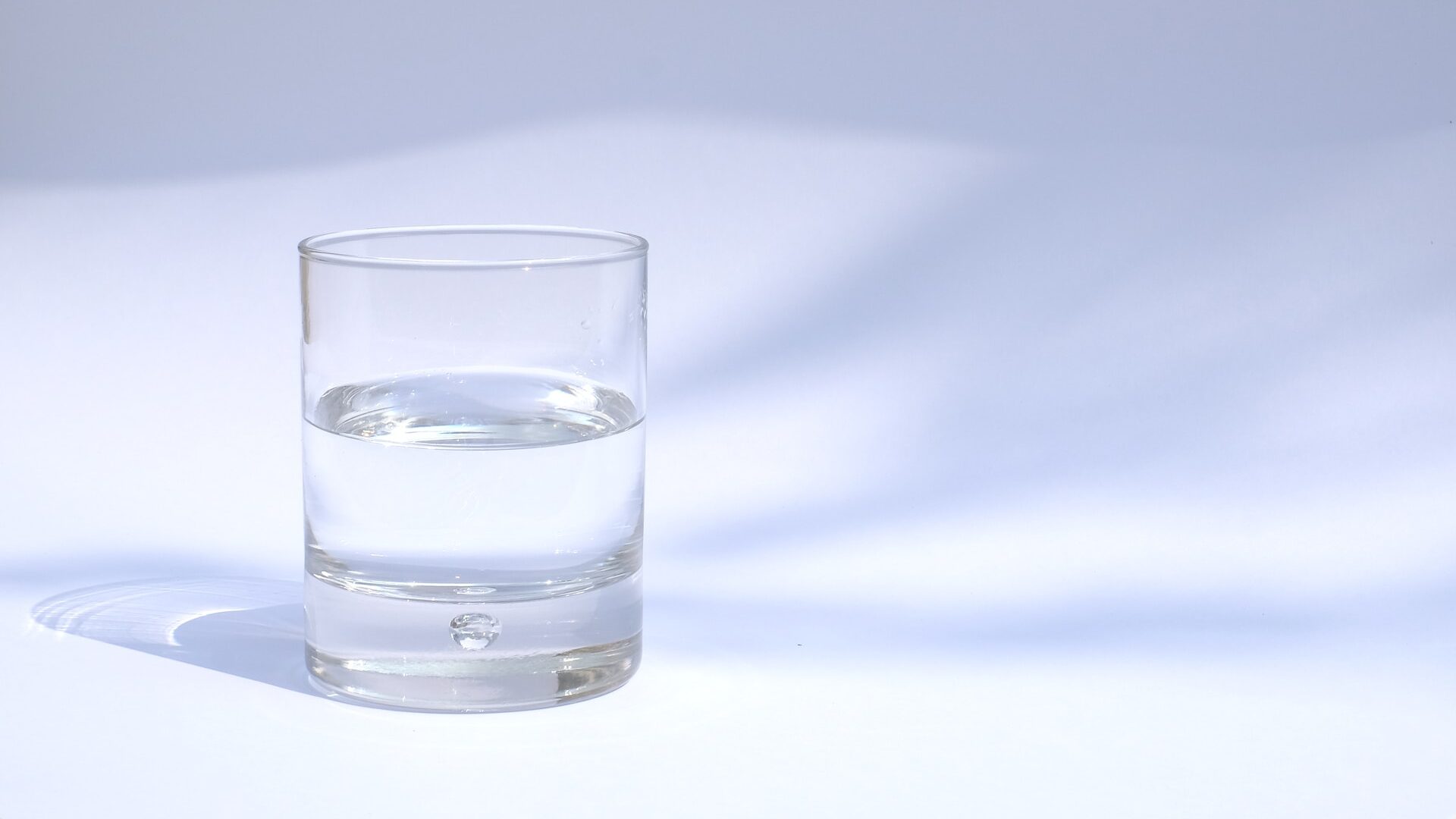
The leading cause of dehydration is drinking too little water. You can end up dehydrated when you don't monitor your water needs. However, certain situations can increase the risk of dehydration. For example, in certain diseases, we are more vulnerable to dehydration. See what dehydration causes so we can be careful and not lead to dehydration.
Fever – Body heat rising over the usual can hint at dehydration. Risks increase with higher body temperature![]() . Fevers stem from varied issues. A common cause is having a cold, which includes symptoms such as runny noses, sore throats, coughing, blocked noses, and rough throats. If you have a persisting low-grade fever without any signs of infection, it could signify an evolving cancer or the start of an autoimmune disease.
. Fevers stem from varied issues. A common cause is having a cold, which includes symptoms such as runny noses, sore throats, coughing, blocked noses, and rough throats. If you have a persisting low-grade fever without any signs of infection, it could signify an evolving cancer or the start of an autoimmune disease.
Diarrhea – Severe and acute diarrhea![]() that occurs suddenly can cause massive loss of water and electrolytes in a short period. Diarrhea condition has increased frequency of stools with a semi-fluid, liquid, or watery consistency and increased volume. Diarrhea can be a significant symptom of many diseases and food poisoning.
that occurs suddenly can cause massive loss of water and electrolytes in a short period. Diarrhea condition has increased frequency of stools with a semi-fluid, liquid, or watery consistency and increased volume. Diarrhea can be a significant symptom of many diseases and food poisoning.
Vomiting – Throwing up and feeling sick, especially when you are also dealing with diarrhea, can seriously dehydrate you. It's basic: vomiting![]() is your stomach's contents exiting out your mouth. Meanwhile, you briefly stop inhaling, and your glottis closes. Seeing or feeling this way isn't rare, but it's also not specific. Health issues causing nausea and vomiting range from minor to critical, even life-endangering. It can also happen due to poison exposure or specific medication use.
is your stomach's contents exiting out your mouth. Meanwhile, you briefly stop inhaling, and your glottis closes. Seeing or feeling this way isn't rare, but it's also not specific. Health issues causing nausea and vomiting range from minor to critical, even life-endangering. It can also happen due to poison exposure or specific medication use.
Cold – A common cold, flu, and other infections![]() can cause dehydration. Therefore, paying particular attention to drinking water for all illnesses that cause weakness in the body is essential. A cold, flu, bronchitis, or bladder infection can make you more susceptible to dehydration due to unwillingness to take in water and increased water loss with fever.
can cause dehydration. Therefore, paying particular attention to drinking water for all illnesses that cause weakness in the body is essential. A cold, flu, bronchitis, or bladder infection can make you more susceptible to dehydration due to unwillingness to take in water and increased water loss with fever.
Chronic diseases – Diseases that persist over a long-term period pose a risk of dehydration. It applies to diabetes![]() , especially where it is uncontrolled or untreated. When blood glucose levels are too high, the body tries to lower them. Excess glucose binds water molecules. The kidneys try to isolate the excess glucose, but as it is bound to many water molecules, there is an increased water loss.
, especially where it is uncontrolled or untreated. When blood glucose levels are too high, the body tries to lower them. Excess glucose binds water molecules. The kidneys try to isolate the excess glucose, but as it is bound to many water molecules, there is an increased water loss.
Kidney diseases – Kidney diseases pose a particular risk of dehydration. Kidney disease also contributes to increased water loss. However, severe dehydration can also lead to kidney damage. Diuretics reduce the body's water, and their misuse can cause dehydration. Insufficient hydration can cause the development of kidney failure. Its first symptom is a gradual reduction in the amount of urine excreted. If dehydration is short-lived, then replenishment of water and electrolytes allows a comeback to optimal functioning.
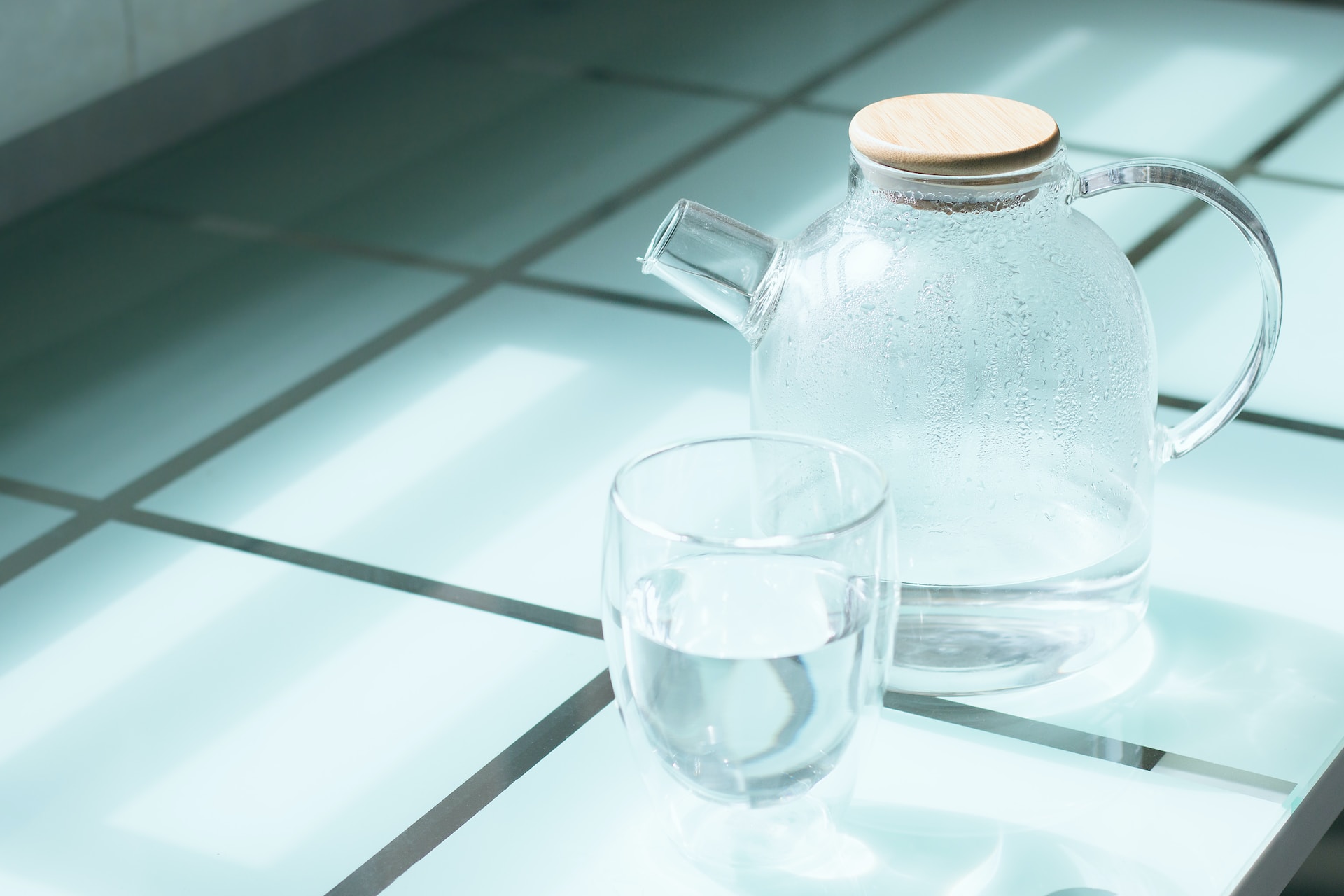
Pregnancy – Pregnant women are at risk of dehydration. Water during pregnancy![]() should be drunk regularly in small portions around the clock, especially when temperatures are high or the woman is physically active. In addition, the risk of dehydration is increased by situations such as emerging diarrhea or vomiting, joint, especially in the first trimester of pregnancy. Also, during lactation, the need for fluids may be slightly higher than usual. However, maintaining proper hydration does not affect breast milk's quantity or quality.
should be drunk regularly in small portions around the clock, especially when temperatures are high or the woman is physically active. In addition, the risk of dehydration is increased by situations such as emerging diarrhea or vomiting, joint, especially in the first trimester of pregnancy. Also, during lactation, the need for fluids may be slightly higher than usual. However, maintaining proper hydration does not affect breast milk's quantity or quality.
Physical exertion – People who work physically and engage in intense sports are at risk of dehydration. Physical activity![]() causes loss of fluids and essential electrolytes, which are disposed of with sweat during exercise. High-performance athletes constantly need to strive for constant hydration. Even less physically demanding sports can cause water loss from the body. To avoid dehydration, it is essential to undertake physical exertion in a state of adequate hydration.
causes loss of fluids and essential electrolytes, which are disposed of with sweat during exercise. High-performance athletes constantly need to strive for constant hydration. Even less physically demanding sports can cause water loss from the body. To avoid dehydration, it is essential to undertake physical exertion in a state of adequate hydration.
Hot weather – In the humid air, sweat cannot cool the body as quickly as usual, thus causing an increase in body temperature. Therefore, people who work and engage in outdoor sports during hot weather![]() should wear protective clothing against the sun and monitor body hydration to avoid overheating or heat stroke, which is life-threatening.
should wear protective clothing against the sun and monitor body hydration to avoid overheating or heat stroke, which is life-threatening.

When we don't drink enough water or lose too much, our bodies fall out of balance. This impacts our fluid and electrolyte levels, pH balance, and temperature regulation. Dehydration can creep up on anyone, but young and old people![]() are at higher risk. Early action, such as drinking fluids, can counter small to medium deficits in water. By recognizing dehydration's symptoms, we can avoid serious problems. Look out for these indicators of dehydration:
are at higher risk. Early action, such as drinking fluids, can counter small to medium deficits in water. By recognizing dehydration's symptoms, we can avoid serious problems. Look out for these indicators of dehydration:
Feeling thirsty – Usually, when dehydrated, your body craves more water. Could you be dehydrated without realizing it? Sometimes, we mistake our body's signals. There's a condition called Adipsia or hypodipsia, where you don't feel thirsty – even when your body needs water. There can be various reasons for this. In seniors, the kidneys can retain water, which reduces the feeling of hunger. It is a typical symptom that occurs with aging.
Dryness – Dryness of the skin, lips, or mucous membranes can indicate dehydration. Lack of water affects the skin's condition, whether it is dry, combination, or oily by nature. A characteristic symptom is a dry mouth. It is an unpleasant ailment that is most often manifested by reduced saliva production by the salivary glands. However, dry skin and mucous membranes can also be symptoms of certain diseases, such as atopic dermatitis.
Dark color of urine – Dehydration causes pee to darken, a visible sign. Pee turning amber or deep yellow points to a low body fluid level. Or, too much bilirubin in the urine might cause it. Hemolysis or liver disease often cause an increase in bilirubin. For many people, dark yellow pee is noticed in the morning. This happens because they don't drink any liquid during the night.
Rarer urination – Scanty urination is a symptom in which small amounts of urine are passed too infrequently, which can be a symptom of dehydration and several severe medical conditions. Scanty urination in children and adults can result from the appearance of bacterial or fungal infections of the kidneys, bladder, ducts, and urethra. If you're dehydrated, you won't feel the need to pee as much. There won't be any other issues like pain when you pee.
Fatigue – Feeling tired? It might be dehydration. It can make you slow, grumpy, and not hungry. Your brain gets affected, too. Your blood vessels get smaller, which can make you confused and forget things. A dry brain can make you forget recent things and mess up your math skills.
Decreased blood pressure – Not drinking enough water can hurt your body, similar to smoking. It can cause problems for the cells that line your blood vessels. It brings about inflammation. Plus, it messes up other things your heart needs to stay healthy. So, if you have issues with blood pressure, remember to drink water. It's critical to make sure your blood pressure stays normal.
Headaches – Not drinking enough water can lead to headaches and feelings of faintness. Your brain needs water to work right. Without it, you may get headaches and have trouble sleeping. When your body cells don't have enough water, many things in your body can change. Although not all the mechanisms leading to headaches during dehydration have been understood, many point to the role of pressure changes within the blood vessels supplying the brain with blood.

Children are among those who are most vulnerable to dehydration conditions. Fluid loss in the body occurs much faster in children than in adults. Infants and children with severe diarrhea, including vomiting, are particularly vulnerable to rapid dehydration. Smaller bodies also lose water more quickly due to high fever or burns. Young children often cannot tell when they are thirsty, nor can they reach for drinks on their own when they feel thirsty. Signs of dehydration in children and infants include:
Sunken fontanel – A properly arched fontanel is usually well-tightened and not throbbing. A slightly sunken fontanel![]() is often observed in healthy babies. It appears in newborns in standing, sitting, or upright positions. When the fontanel is more severely open, it can signal an infant's state of dehydration. Sunken cheeks can also be a signal of dehydration in infants.
is often observed in healthy babies. It appears in newborns in standing, sitting, or upright positions. When the fontanel is more severely open, it can signal an infant's state of dehydration. Sunken cheeks can also be a signal of dehydration in infants.
Crying without tears – Babies often cry because calling is the primary form of communication with the environment. This is how they express their emotions and signal needs or manifest pain. The absence of tears![]() may be a signal of dehydration. However, it should be remembered that crying without tears is entirely normal in newborns. The lacrimal gland fully develops until about three weeks of a toddler's life, and only then does it produce enough moisture to keep the eyes healthy and to be able to cry crudely.
may be a signal of dehydration. However, it should be remembered that crying without tears is entirely normal in newborns. The lacrimal gland fully develops until about three weeks of a toddler's life, and only then does it produce enough moisture to keep the eyes healthy and to be able to cry crudely.
Decreased urine volume – If you notice that your baby is urinating less than usual, it could be a signal of dehydration. Fewer than six wet diapers a day in infants and no wet diapers or urination for eight hours in young children is a symptom of dehydration.
Dry mucous membranes – Dehydrated Children may experience dry mouth and tongue. If you notice a dry tongue and dry mouth in your child, it could be a sign of dehydration. It is also worth remembering that children with diabetes often have a dry tongue and generalized atrophy of the papillae of the tongue.
Pale, not elastic skin – A child lacking water has a distinct skin texture![]() . Their skin becomes dry, pale, and loses elasticity. It's evident if you take a look. To confirm a child's dehydration, check their skin too. Dehydration changes a kid's skin color to pale and reduces elasticity when touched. In addition, their hands and feet might feel extremely cold.
. Their skin becomes dry, pale, and loses elasticity. It's evident if you take a look. To confirm a child's dehydration, check their skin too. Dehydration changes a kid's skin color to pale and reduces elasticity when touched. In addition, their hands and feet might feel extremely cold.
Rapid breathing – Deep breath![]() can be a sign of dehydration. Kids breathe faster and deeper if they lack water. But don't forget, babies breathe at a faster rate than grown-ups. Therefore, a child's rapid breathing should not alarm us, as should pauses in breathing if they occur sporadically and do not last longer than 10 seconds.
can be a sign of dehydration. Kids breathe faster and deeper if they lack water. But don't forget, babies breathe at a faster rate than grown-ups. Therefore, a child's rapid breathing should not alarm us, as should pauses in breathing if they occur sporadically and do not last longer than 10 seconds.

Dehydration can have various states, from mild to severe cases. In each condition, symptoms can vary. Severe cases also need specialized help to rehydrate the body. Dehydration conditions include:
Light dehydration – A person with minor water deficiency may show signs like feeling thirsty often, feeling weak, experiencing headaches, and feeling dizzy. Mild dehydration can be combated by regularly drinking water – no need for medical treatment. Consuming water in moderate sips throughout the day helps. Fruits and vegetables are also suitable for hydration. Once the body is hydrated, the unpleasant signs will disappear. This condition isn't fatal, but unchecked, it can get worse.
Moderate dehydration – If dehydration gets more severe, you may feel your mouth drying out, your heart racing, and you will see less urine output. If you get to a point where dehydration is moderate, oral rehydration therapy can be used. This method typically uses unique solutions that are readily available at drugstores. It is essential to replenish not only water but also lost electrolytes. If the patient's body fluids are not filled at this stage, acute dehydration can occur, endangering the patient's life.
Severe dehydration – In severe cases of dehydration in an adult, neurological symptoms and mental disorders are observed, and the dehydrated person has a significantly accelerated respiratory rate. Syncope and convulsions may occur. Where severe dehydration or more severe symptoms occur, it is necessary to implement hospital treatment and intravenous administration of glucose or sodium chloride combined with potassium chloride. Dehydration of the body can cause serious health consequences. In very severe cases, it is life-threatening.

Not all symptoms of dehydration are apparent, so sometimes additional diagnostics can be helpful. Laboratory diagnostics are also valuable for chronic dehydration. For this goal, the following tests are used:
The test to check dehydration is mostly a urinalysis. The test involves evaluating a collected urine sample physically and biochemically, as well as for the presence of specific cells, rollers, and crystals in it. If there is little sodium in the urine or a high nitrite level, dehydration is likely. Normal urine is clear, pale, or straw-yellow. If it is darker and there is little sodium![]() , you should replenish water in the body as soon as possible.
, you should replenish water in the body as soon as possible.
In a general urine test, the higher the specific gravity, the greater the density of the urine, and what is the greater the level of dehydration in the body. Urinalysis belongs to the primary laboratory tests that can help diagnose various conditions. If there is glucose![]() in the urine, it may indicate diabetes, which can cause water loss.
in the urine, it may indicate diabetes, which can cause water loss.
A blood count can also detect a dehydration condition. It is also a valuable test to determine complications. Blood morphology can isolate essential indicators such as hematocrit, creatinine, and electrolyte levels.
Hematocrit level – The blood test should look for an element called hematocrit, denoted as HCT![]() . The higher the hematocrit, the greater the density of red blood cells and the less plasma, primarily composed of water. Its levels are elevated in dehydrated patients. Determination of HCT involves taking a venous blood sample from the patient, usually from the ulnar vein. It should also be noted that a contraindication to determining hematocrit is ongoing menstruation, which can affect the falsification of the results.
. The higher the hematocrit, the greater the density of red blood cells and the less plasma, primarily composed of water. Its levels are elevated in dehydrated patients. Determination of HCT involves taking a venous blood sample from the patient, usually from the ulnar vein. It should also be noted that a contraindication to determining hematocrit is ongoing menstruation, which can affect the falsification of the results.
Creatinine level – In some cases, in diagnosing dehydration, it is advisable to determine the creatinine![]() level, reflecting kidney function. Creatinine is a product of protein metabolism and is excreted in the urine. The goal of testing this parameter is usually to assess kidney function with existing symptoms. When this level rises, and the kidneys work correctly, dehydration may be the cause. The tests should return to normal with supply and equalization of water balance.
level, reflecting kidney function. Creatinine is a product of protein metabolism and is excreted in the urine. The goal of testing this parameter is usually to assess kidney function with existing symptoms. When this level rises, and the kidneys work correctly, dehydration may be the cause. The tests should return to normal with supply and equalization of water balance.
Electrolyte level – An ionogram![]() is also helpful. A test of the concentration of electrolytes in the blood is called an ionogram. An ionogram is an essential diagnostic test that allows us to determine the concentration of specific elements and compounds in our body. Dehydration is serious. It affects vital electrolytes in our bodies. These include sodium, potassium, calcium, magnesium, and chloride ions. These electrolytes have a special job. They bind with and hold on to water. So, if these electrolytes increase, it could mean you are dehydrated.
is also helpful. A test of the concentration of electrolytes in the blood is called an ionogram. An ionogram is an essential diagnostic test that allows us to determine the concentration of specific elements and compounds in our body. Dehydration is serious. It affects vital electrolytes in our bodies. These include sodium, potassium, calcium, magnesium, and chloride ions. These electrolytes have a special job. They bind with and hold on to water. So, if these electrolytes increase, it could mean you are dehydrated.
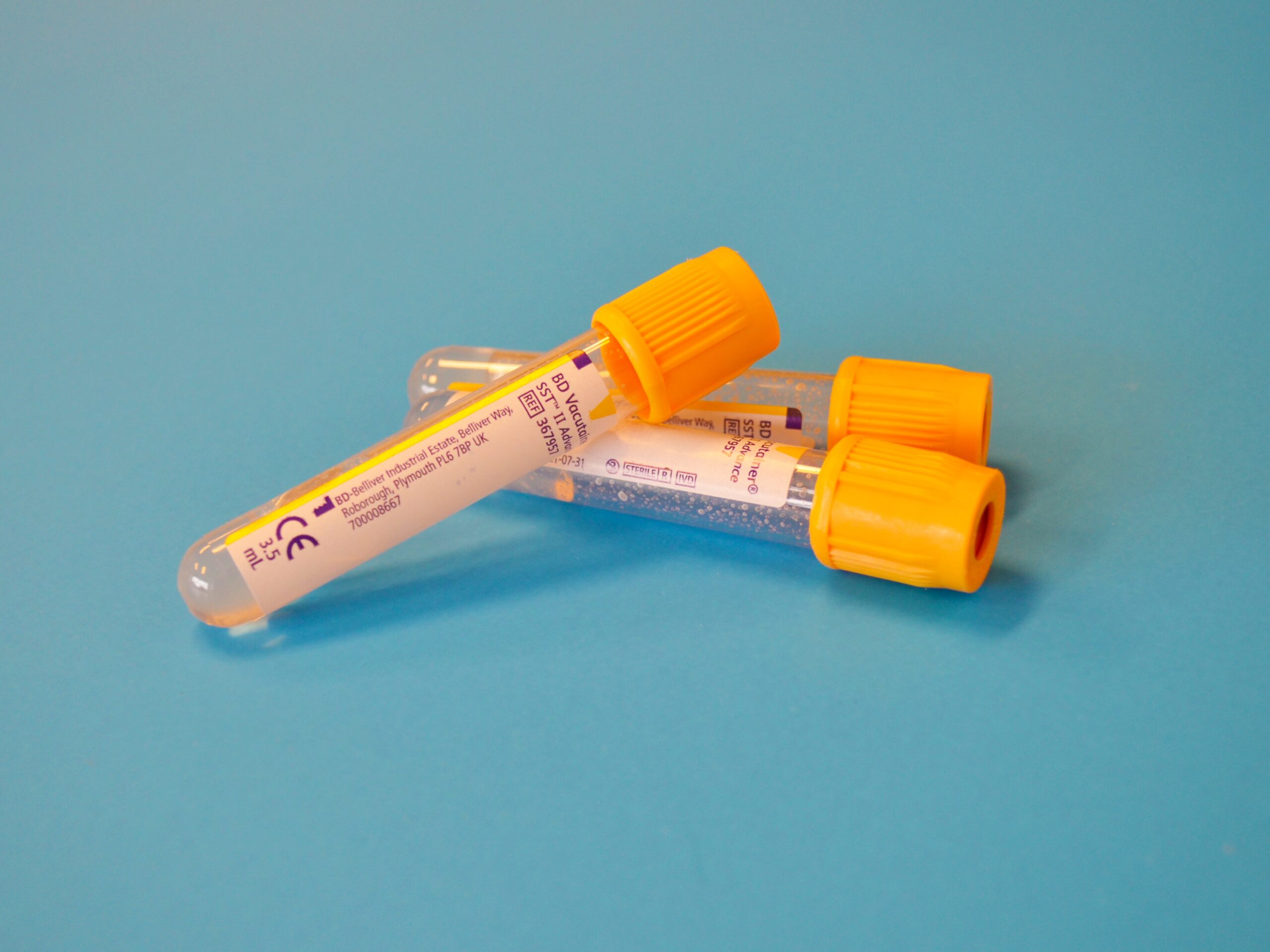
Dehydration treatment mainly stops more water loss and replaces water and electrolytes. Yet, the treatment can differ based on the patient's state.
When dehydration is spotted, filling up fluid and electrolyte shortfalls is crucial. Low amounts of water should be added steadily, not all at once. Drinking good water, sugarless herbal tea, and specific rehydration mixes containing electrolytes and glucose can help in this objective.
Eating right is also needed for dehydration. Understand that fluids can be gained by drinking water and teas and having fruits, vegetables, and soups. These also put back the minerals lost by your body. Following a vegetable and fruit diet that is easy to digest and rich in fluids is advisable during dehydration.
One of the most common causes of dehydration is vomiting, occurring in the course of acute gastrointestinal infections. Warm drinks can aggravate the vomiting reflex. In such cases, chilled fluids are best taken slowly in small sips.
Untreated dehydration can lead to death. The human body can survive without water for about 4-7 days, so quickly recognizing the condition and correcting the deficiency is extremely important. When symptoms indicate severe dehydration, you should immediately go to the hospital.
In cases of acute dehydration, hospitalization![]() is necessary, during which patients are given a drip. It is required to administer intravenous glucose or sodium chloride combined with potassium chloride. The administration of fluids by intravenous route makes the necessary electrolytes go directly into the blood, so the improvement in well-being is much faster.
is necessary, during which patients are given a drip. It is required to administer intravenous glucose or sodium chloride combined with potassium chloride. The administration of fluids by intravenous route makes the necessary electrolytes go directly into the blood, so the improvement in well-being is much faster.
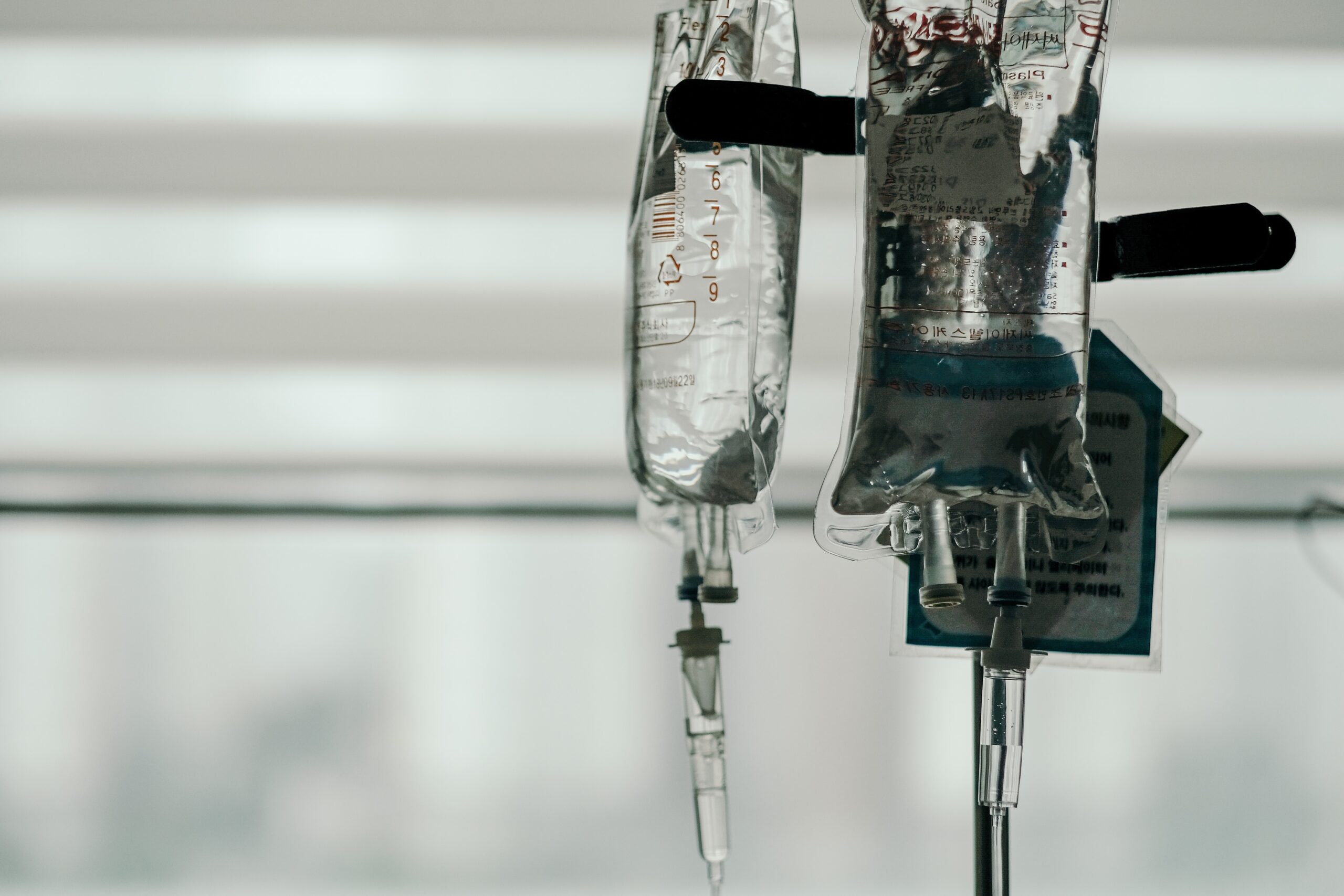
Water performs many vital functions for the proper functioning of the body. It is an essential ingredient for survival and is one of the basic building materials. Its deficiency can disrupt the following functions:
Because of water, metabolism is possible, sustaining life processes. Water is involved in metabolic processes such as cellular respiration. Water is good for transporting and metabolizing carbohydrates and proteins. In addition to reducing hunger and prolonging the feeling of satiety, water helps accelerate the metabolic rate.
Drinking water ramps up your metabolism. It speeds up your metabolism, helping you burn more calories. Without enough water, your body can't work as well. Fat burning slows down. You feel tired more quickly. Our bodies also use water to eliminate toxic substances from metabolism, which can stop you from exercising more.
Water is key in controlling our body's inner heat. It's crucial for us, incredibly, when the weather's hot. It shields us from getting too hot. We gulp it down when we're working out to fuel our muscles and keep our body's heat in check. The body loses heat by sweating to avoid getting hotter. Sweat turns to vapor, cooling the tissues.
Intense sweating takes away our body's water, creating a lack of fluids and a negative water balance. Dehydration, affecting reduced sweat production, can contribute to worsening thermoregulatory disorders. Dehydration-induced hypovolemia also causes a relative decrease in dermal vascular bed dilation during exercise, which reduces the capacity to transmit heat to the environment.
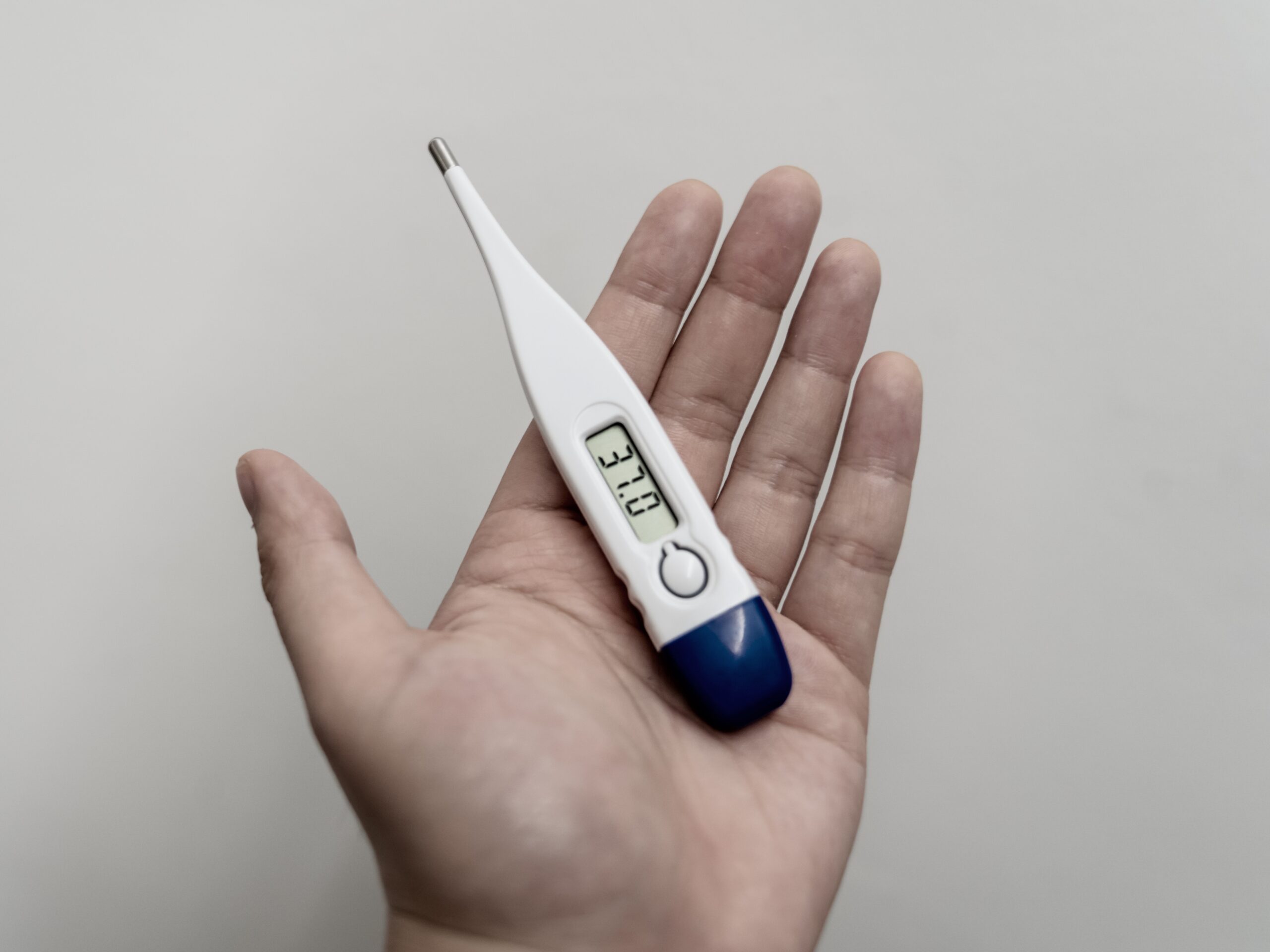
Water enables nutrients and oxygen to be carried to the body's cells. As a blood component, water is involved in delivering oxygen to cells. Oxygen and carbon dioxide are respiratory gases that must be transported efficiently throughout the body. Both gases are carried with the blood. Living cells constantly need oxygen so that metabolic processes can take place.
Oxygen is essential in obtaining energy in the mitochondria; with dehydration, blood density increases, which can cause hypercoagulability![]() . Blood then flows more slowly through the circulatory system and delays the transport of nutrients and oxygen to cells.
. Blood then flows more slowly through the circulatory system and delays the transport of nutrients and oxygen to cells.
In a situation of extreme dehydration, blood flow can shut down, and cell death can occur. In addition, the risk of clot formation increases, which can block blood vessels in the brain, heart, or lungs.
Water impacts how your body digests food. It helps make saliva, stomach acid, and bile for food breakdown. So, water is vital for normal digestion. It aids in food piece formation, moving food in your digestive tract, and properly working digestive enzymes. Limited water can lead to digestive issues. It can also lead to weight increase.
Dehydration can also cause constipation![]() . Constipation is a prevalent condition disease of the digestive tract. They are described as having difficulty passing stools with a simultaneous feeling of incomplete bowel movements. A characteristic feature of constipation is also a small number of bowel movements.
. Constipation is a prevalent condition disease of the digestive tract. They are described as having difficulty passing stools with a simultaneous feeling of incomplete bowel movements. A characteristic feature of constipation is also a small number of bowel movements.
Water affects the normalization of blood pressure. Symptoms of long-term dehydration belong to hypertension![]() . Hypertension is an ailment characterized by high blood pressure in the vascular system. Mild hypertension is usually asymptomatic and is diagnosed incidentally.
. Hypertension is an ailment characterized by high blood pressure in the vascular system. Mild hypertension is usually asymptomatic and is diagnosed incidentally.
Untreated hypertension causes complications such as coronary heart disease, stroke, heart failure, and kidney damage, among others. Thus, dehydration promotes the onset of inflammation and affects arterial stiffness, blood pressure regulation, and other factors that negatively affect the risk of heart disease. Drinking water often and regularly can reduce the risk of hypertension.

Water enables body detoxification by removing unnecessary metabolic products in urine, feces, and through the skin. Water hydrates, moisturizes, and cleanses the body of toxins and deposits. Frequent urination promotes the flush of pathogenic bacteria out of the urinary tract, so increasing the supply of fluids is recommended to avoid urinary and kidney diseases.
Water deficiency means toxic substances are not optimally excreted from the body, which can result in cystitis![]() . Cystitis is a common infection, especially in young women, although it can also occur in men and children. It is characterized by frequent urination accompanied by a burning sensation. Sometimes, a nagging pain in the lower abdomen is also felt.
. Cystitis is a common infection, especially in young women, although it can also occur in men and children. It is characterized by frequent urination accompanied by a burning sensation. Sometimes, a nagging pain in the lower abdomen is also felt.
Water protects the brain and different internal organs from damage. In addition, it hydrates the eyeballs, joints, and other internal organs. Too little water supply weakens the work of all internal organs, which results in a gradual deterioration of health.
The human brain consists of 73% water, as does the heart. In contrast, bones are 31% water, muscles and kidneys are 79%, and skin is 64%. As much as 83% of water is in the lungs. Fetal waters also surround the baby in pregnant women, protecting it from mechanical trauma, temperature fluctuations, and microorganisms. However, long-term dehydration can have much more severe consequences, causing weakening of the body and damage to many organs.
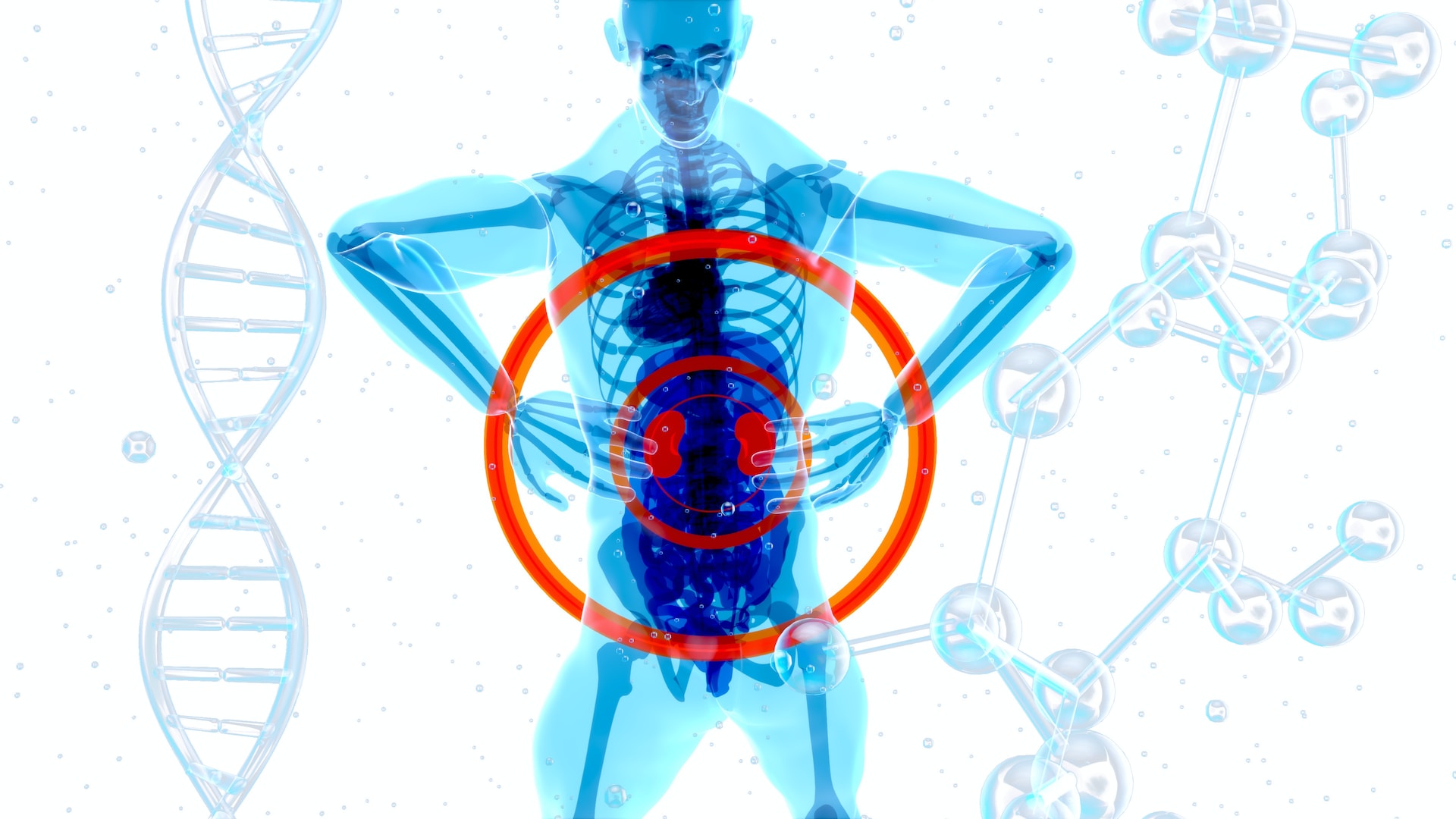
Electrolytes play an influential role in maintaining the homeostasis of a properly functioning body. They regulate the heart and nervous system, maintain proper fluid balance, supply oxygen to tissues, and maintain acid-base balance. Isotonic dehydration occurs where there is an equivalent loss of water and electrolytes.
The water loss is accompanied by severe electrolyte imbalances![]() , which can cause heart rhythm changes, blood pressure drops, and syncope. Sometimes, there are problems with vision, constant and painful constipation, and chronic fatigue. The most severe and most common disorders involve sodium and potassium ions. The most common cause of disorders is kidney failure.
, which can cause heart rhythm changes, blood pressure drops, and syncope. Sometimes, there are problems with vision, constant and painful constipation, and chronic fatigue. The most severe and most common disorders involve sodium and potassium ions. The most common cause of disorders is kidney failure.
Water is an essential nutrient for every body cell and primary building material. Water is necessary for proper movement. Water is the building block of the joint space, so it prevents arthritis and back pain. By supplying water, we relieve stress on joints and muscles, as the connective tissue can become permeable again. Water is suitable for lubrication between the vertebrae and as a shock absorber between the disc rings.
Chronic dehydration decreases the natural ability of tissues to glide, limits the range of motion, interferes with joint function, glues fascia together, and loses elasticity. Water deficiency can cause muscle and joint problems, such as arthritis![]() .
.

Water protects the brain, spinal cord, tissues and organs. It enhances the production of neurotransmitters, improves memory, and slows the aging process. The formation of hormones and neurotransmitters in the central nervous system projects signals between nerve cells.
Neurotransmitters mediate information between neurons and neurons and muscles and glands. Among the most well-known neurotransmitters belong to the hormones responsible for well-being, so adequate hydration also affects mental health.
Dehydration can cause cognitive decline, memory impairment, decreased ability to concentrate, impaired coordination of movements, and persistent headaches. It is even pointed out that dehydration disrupts neurotransmitter function![]() , so it may even contribute to the development of depression.
, so it may even contribute to the development of depression.
According to statistics, the human body consists of about 55% to 75% water. Differences depend on age and gender; for example, newborns have about 78% water, a one-year-old child has 65%, adult men have 60%, and adult women have about 55%. This is because fat tissue in women makes up a more significant portion of the body than in men, and fat contains less water than fat-free tissue.
Fluids, once they enter the stomach, reach the intestines very quickly. Especially where it is water in its pure form. From there, they are reabsorbed back into the blood, distributing water molecules throughout the body's cells, providing them with this life-giving substance. From the comeback, the blood, along with the water, goes to the kidneys, where it is filtered, and the remaining water turns into urine, which is excreted to the outside world.
In the case of a healthy person, it is essential to remember to satisfy thirst daily. However, there are cases when the body has to learn to function with a reduced water supply. This can be, thus, caused by the lack of access to drinking water in Third World countries or by living in a scorching climate, which increases the transpiration of water through the skin and leads to difficulties in replenishing these deficiencies regularly.
Chronic dehydration![]() also occurs when we don't notice the early symptoms of dehydration. The risk increases with age and seriously threatens our health. Also, in certain diseases, taking care of proper hydration is difficult. People with undiagnosed diseases can end up in a chronic state of dehydration, which can have detrimental effects on health. Diseases caused by chronic dehydration include:
also occurs when we don't notice the early symptoms of dehydration. The risk increases with age and seriously threatens our health. Also, in certain diseases, taking care of proper hydration is difficult. People with undiagnosed diseases can end up in a chronic state of dehydration, which can have detrimental effects on health. Diseases caused by chronic dehydration include:

Gastric ulcers – When a person has a stomach ulcer, it means there's damage to the stomach lining. This happens because of the harsh acids and digestion helpers in our stomach fluids. These strong acids can wear away at the stomach wall, which usually has a protective layer to prevent this. But when it's gone, the acids can start to eat the wall. Over time, this leads to discomfort and other issues. The main issue someone might sense when eating is discomfort, or even pain, in the upper stomach area. You might also be hungrier less often, feel like your stomach is too full, feel sick or even throw up.
High cholesterol levels – Keeping cholesterol levels appropriate is vital for our bodies to work well. Yet, when they're too high, serious health problems can occur. High cholesterol doesn't typically show any early signs. Many times, secondary hypercholesterolemia is found by chance during unrelated tests or following a severe heart-related event. In the advanced stage of the disease, serious complications such as coronary artery disease and ischemia of the body's organs can develop, which can lead to stroke or heart attack.
Obesity – The problem of obesity is the result of the superimposition of many abnormalities; indeed, the reasons for its appearance are highly complex. Obesity is a chronic disease. Obesity is related to excess fat accumulation. Its cells are metabolically active, which causes an imbalance in the processes that take place in the body. Chronic inflammation then develops, and the blood's concentration of free fatty acids increases.
Hypertension – Hypertension is one of the diseases of civilization. Due to the lack of characteristic symptoms, many people are unaware that they suffer from it. The consequence of lack of proper treatment is the development of cardiovascular complications, which contribute to a shorter life. Symptoms are uncharacteristic, and they do not appear in many people. Headaches and palpitations may occur. Long-term elevation of blood pressure is responsible for the development of many dangerous complications.
Rheumatism – It is the term for a collection of many diseases that attack the musculoskeletal system, mainly the joints. Despite the different accompanying symptoms and course, all rheumatic diseases are characterized by chronic, recurrent rheumatic pain and impaired mobility in various joints of the body. Rheumatism refers to inflammatory changes in the connective tissue. It occurs in both seniors and young people, regardless of gender. Late diagnosis and failure to introduce timely treatment and rehabilitation can result in irreversible changes in the musculoskeletal system that will effectively impede independent functioning.
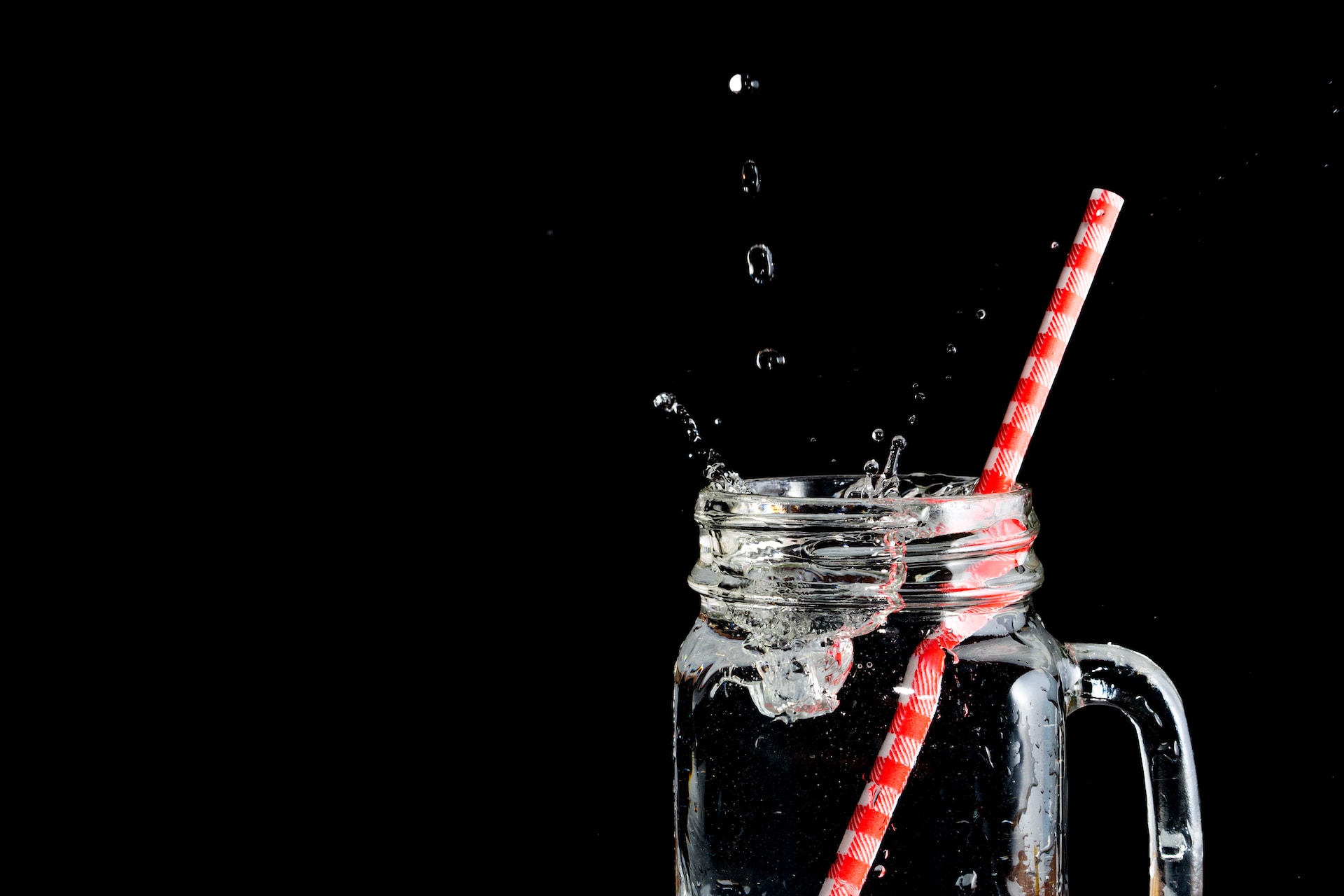
Angina pectoris – It is one type of ischemic heart disease. It causes insufficient blood flow to the heart to supply nutrients and oxygen. A condition in which the heart is hypoxic and malnourished is called ischemic heart disease. Angina is characterized by chest pain described as pressure, heaviness, or burning. The discomfort caused by myocardial ischemia is localized near the sternum. The pain is triggered by physical exertion, emotional stress, a sudden change in temperature, or a hearty meal.
Bladder cancer – Bladder cancer can develop for a long time without producing any symptoms. For this reason, it is diagnosed at an advanced stage with associated metastases in most cases. A worrisome symptom that should prompt the patient to visit the doctor urgently is the apparent change in the color of the urine from yellow to light or dark red. In the case of bladder cancer, the change in urine color is due to hematuria or the presence of a large number of red blood cells in the urine. Bladder cancer is completely curable if detected at an early stage.
Chronic fatigue syndrome – The condition is a clinically diagnosed condition that is characterized by feelings of extreme exhaustion. It may intensify during physical or mental activity but does not subside after rest. It leaves the person tired, with no apparent cause, and nothing helps to change the condition. For chronic fatigue to be diagnosed, symptoms must be present or recurrent for at least six consecutive months.
Alzheimer's disease – It is a chronic, progressive neurodegeneration of the brain causing dementia. Initially, the patient has subtle symptoms, such as losing things or difficulty recalling words. In later stages of the disease, impairment of judgment, speech disorders, and disorientation in time and space come into play. Degradation of nerve cells progresses gradually, and the rate of these changes depends on the patient's individual characteristics. When dementia reaches an advanced stage, the patient requires specialized care.
Depression – Depression is one of the most severe and most common mental illnesses in the world. It is sometimes ignored and dismissed as a sign of ordinary sadness, a drop in energy, or overwork. However, if left untreated, it causes disastrous consequences. Depressive disorders are mental disorders belonging to the group of mood disorders. If depressive symptoms affect the patient's daily functioning, cause mental suffering, and persist for a long term, then it is necessary to seek the help of a specialist.
Dehydration is when your body doesn't have enough water to work correctly. If you don't replace that lost liquid, dehydration causes health problems. Extended dehydration is dangerous. It's hazardous for babies, young kids, and older people.
Dehydration is mainly caused by not drinking enough water. When water needs aren't monitored, dehydration happens. Things like certain diseases can up risk for dehydration. We dry out easier in these cases. Trouble brews when not enough water comes in or too much leaves. This makes a bad water scale. This can throw off water-electrolyte rates, acid-base levels, and heat control.
Drinking more when water levels dip can help. Spotting dehydration early helps avoid bigger problems. Warning signs can be vague sometimes, so extra tests help. The main aim of dehydration care is to stop more water loss and fill up on water and electrolytes. Still, care approaches can shift based on a person's health state.